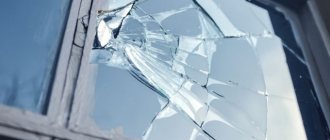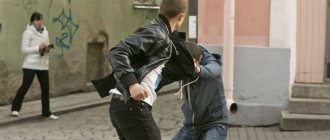The right of the victim to compensation for property damage
Lawyer Antonov A.P.
In Part 3 of Art. 42 of the Code of Criminal Procedure of the Russian Federation, the legislator enshrined one of the important guarantees of respect for the rights of the victim in criminal proceedings. Here, in particular, it is said that “the victim is provided with compensation for property damage caused by the crime, as well as expenses incurred in connection with his participation during the preliminary investigation and in court, including expenses for a representative, in accordance with the requirements of Article 131 of this Code.”
Compensation for property damage caused by the crime, as well as expenses incurred in connection with his participation during the preliminary investigation and in court, including expenses for a representative, is “provided” to the victim. The legislator does not specify the methods of such provision, therefore this term can be understood as any activity of an investigator (inquirer, etc.) aimed at organizing compensation for the victim of property damage caused by a crime, as well as expenses incurred in connection with his participation in criminal proceedings. , court (judges).
Ensuring compensation to the victim for property damage caused by the crime, as well as expenses incurred in connection with his participation during the preliminary investigation and in court, is the active actions of the investigator (investigator, etc.), the result of which is real compensation to the victim for these material losses. The investigator (inquiry officer, etc.), the court (judge) must do everything possible on their part to ensure that the victim receives compensation in strict accordance with the requirements of the law. If the victim was not provided with compensation for property damage caused by the crime, as well as expenses incurred in connection with his participation in the criminal process, and the corresponding petition was filed, it should be considered that the investigator (inquiry officer, etc.), the court (judge) did not fulfilled their assigned duties.
Damage caused by the crime, compensation for which the investigator (inquiry officer) in accordance with Part 3 of Art. 42 of the Code of Criminal Procedure of the Russian Federation should have provided for losses and other harm.
Losses in this case are called:
1) loss, damage to property (real damage) of the victim, as well as
2) lost income that the victim would have received under normal conditions of civil circulation if his right had not been violated (lost profits) (Article 15 of the Civil Code of the Russian Federation).
It is recommended to consider other harm as the monetary value of physical as well as moral harm caused by a crime.
The legislator has provided several ways to compensate for damage:
1) civil claim in criminal proceedings (parts 2 and 3 of Article 44, part 6 of Article 246 of the Code of Criminal Procedure of the Russian Federation);
2) compensation for material damage at the initiative of the court;
3) imposition by the court of the obligation to make amends for the damage caused (clause “c” of Part 2 of Article 90 of the Criminal Code of the Russian Federation). The named method of compensation for damage is not fixed in the Code of Criminal Procedure of the Russian Federation;
4) the actual return of the stolen property to its owner (clauses 3, 5, 6, part 3 of Article 81 and subsection “b” clause 1, subclause “a” clause 2, subclause “b” clause 4, subparagraph “a”, paragraph 4.1, subparagraph “b,” paragraph 5, subparagraph “b,” paragraph 9, part 2, article 82 of the Code of Criminal Procedure of the Russian Federation);
5) voluntary compensation for material (moral) damage or otherwise making amends for the damage by the criminal or his relatives. And this method, despite its widespread use in practice, is not enshrined in the criminal procedure law. It is mentioned in paragraph “k” of Art. 61 and art. 75 of the Criminal Code of the Russian Federation. According to data conducted by V.A. Azarov's research shows that in 22.4% of criminal cases, material damage was compensated voluntarily by the accused or his relatives.
The Code of Criminal Procedure of the Russian Federation does not directly speak about compensation for material damage at the initiative of the court, however, it contains a number of provisions that allow us to say that the court has at least such a right. So, according to Part 3 of Art. 42 of the Code of Criminal Procedure of the Russian Federation, the victim is provided with compensation for property damage caused by the crime. A civil claim may be filed before the end of the judicial investigation during the trial of a criminal case in the court of first instance (Part 2 of Article 44 of the Code of Criminal Procedure of the Russian Federation). According to Part 1 of Art. 44 of the Code of Criminal Procedure of the Russian Federation, the decision to recognize a civil plaintiff can be formalized by a court ruling or a judge’s ruling. The court is entrusted with the obligation, at the stage of preparing the case for the court hearing, to find out whether measures have been taken to ensure compensation for damage caused by the crime (clause 5, part 1, article 228 of the Code of Criminal Procedure of the Russian Federation).
Forms of voluntary compensation for harm:
a) depositing sums of money into the deposit account of the court, which must then consider the criminal case;
b) handing over money to the victim against receipt (it is better when this action is carried out in the presence of an investigator (interrogator, etc.));
c) transfer of money to an account known to the investigator (interrogating officer, etc.);
d) voluntary surrender of items of criminal offense to the competent government authorities;
e) transfer to the victim (another person who has been harmed by a crime) for the purpose of compensation for damage of equivalent property.
In practice, criminal restitution takes place, that is, compensation for damage not with money, but with a similar thing. This method of compensation protects the victim from the adverse effects of inflation, shortages, etc.
When the location of the items of criminal offense is known, usually the investigator (investigator, etc.) seizes them and returns them to the owners. If property was acquired for compensation from a person who did not have the right to alienate it, which the acquirer did not know and could not know about (a bona fide acquirer), then the owner has the right to claim this property from the acquirer in the event that the property is lost by the owner or the person to whom the property was transferred the owner into possession, or stolen from one or the other, or removed from their possession in some other way against their will. If property was acquired free of charge from a person who did not have the right to alienate it, the owner has the right to reclaim the property in all cases. Money, as well as bearer securities, cannot be demanded from a bona fide purchaser (Article 302 of the Civil Code of the Russian Federation).
The following actions of the competent state bodies can be recognized as means of fulfilling the obligation to compensate for damage caused by a crime:
1) proving the nature and amount of damage (Article 73 of the Code of Criminal Procedure of the Russian Federation);
2) recognition of citizens and legal entities as victims (civil plaintiffs);
3) involvement of appropriate entities as civil defendants;
4) search and seizure of stolen property;
5) return by state bodies of objects of criminal encroachment to their legal owners;
6) explaining to the accused (civil defendant, their close relatives and relatives) the need for voluntary compensation (making amends) for the material (moral) damage caused by the crime;
7) identification and seizure of property (money, other valuables), with the help of which the damage caused by the crime can be repaid;
9) transfer of seized property for safekeeping.
Preliminary investigation authorities must make efforts to search for property. For these purposes, some of them can set up ambushes, carry out patrols, inspect the adjacent territory, and send requests.
According to the law, to ensure the execution of a sentence in terms of a civil claim, collection of a fine, other property penalties or possible confiscation of property specified in Part 1 of Art. 104.1 of the Criminal Code of the Russian Federation, an investigator (inquirer, etc.), with the consent of the head of the investigative body (prosecutor), initiates a petition before the court to seize the property of the suspect, accused or persons who are legally liable for their actions. When deciding on the seizure of property to ensure possible confiscation, the court indicates the specific factual circumstances on the basis of which it made such a decision, and also establishes restrictions associated with the possession, use, and disposal of seized property (Part 1 of Article 115 of the Code of Criminal Procedure RF).
When scheduling a court hearing, the judge is obliged to check whether all persons who suffered moral, physical and (or) property harm by the crime are recognized as victims in the case. If it is established that any of them is unreasonably not recognized as a victim, the judge, by his decision (Part 1 of Article 42 of the Code of Criminal Procedure of the Russian Federation), is obliged to recognize such a person as a victim, notify him about this, explain his rights and provide, after the appointment of a court hearing, the opportunity to familiarize himself with all the materials of the case. Having determined that the rights of a victim have been granted to someone unreasonably, the judge must make a decision to remove such a person from participating in the case as a victim and notify him of the decision.
During a preliminary hearing or in the preparatory part of a court hearing in a case of a crime that caused material damage, the judge should find out whether the injured persons or organizations have been explained their right to sue, whether a civil claim has been filed, and whether measures have been taken to ensure compensation for damage. If such measures were not taken during the preliminary investigation, the judge (court) on the basis of Art. 230 of the Code of Criminal Procedure of the Russian Federation, it is necessary to resolve the issue of seizing property, cash deposits, etc. or oblige the relevant authorities to take the necessary measures to ensure compensation for material damage and possible confiscation of property. In the event that a civil claim does not arise from the content of the accusation, the court makes a ruling that the claim does not relate to this case and is not subject to consideration.
If the court is considering the issue of applying compulsory medical measures to the harm-cauter, the civil claim of the victim is also not subject to consideration, which does not prevent its subsequent presentation and consideration in civil proceedings, about which the court makes an appropriate decision.
Compensation for damage caused by a crime in criminal cases of violation of copyright and related rights is specific (Article 146 of the Criminal Code of the Russian Federation). According to Art. 1301 of the Civil Code of the Russian Federation, in cases of violation of the exclusive right to a work, the author or other copyright holder, along with the use of other applicable methods of protection and measures of liability established by the Civil Code of the Russian Federation (Articles 1250, 1252 and 1253), has the right in accordance with paragraph 3 of Art. 1252 of the Civil Code of the Russian Federation, at one’s choice, require the violator to pay compensation instead of compensation for losses:
1) in an amount from ten thousand rubles to five million rubles, determined at the discretion of the court based on the nature of the violation;
2) twice the cost of counterfeit copies of the work;
3) twice the cost of the right to use the work, determined on the basis of the price that, under comparable circumstances, is usually charged for the lawful use of the work in the manner used by the infringer.
In this regard, the victim (author or other copyright holder) should understand that if, as part of the criminal process, he declares compensation for the damage caused to him, he will deprive himself of the opportunity to compensate for the damage caused to him in one of the three ways provided for in Art. 1301 of the Civil Code of the Russian Federation. In this regard, he is recommended to file a civil claim not for damages, but for compensation, for example, twice the value of the right to use the work, determined on the basis of the price that, under comparable circumstances, is usually charged for the lawful use of the work in the manner used by the suspect, accused.
Some will argue that civil legal compensation cannot be achieved in criminal proceedings. We consider this issue controversial already because the Plenum of the Supreme Court of the Russian Federation, in its Resolution No. 17 of June 29, 2010 “On the practice of application by courts of norms regulating the participation of the victim in criminal proceedings,” repeatedly used the expression “compensation for damage caused.” This Resolution begins with the statement that “strict compliance with the rules governing the participation of the victim in criminal proceedings serves as an important guarantee for the realization by a person who has suffered from a crime of his constitutional right to ... compensation for the damage caused to him.” And this is a position that will be difficult for the courts to ignore.
But even if the victim does not understand the investigator (inquirer, etc.), the court, he still should not file a claim for compensation for damages caused by the crime in cases of violation of copyright and related rights, if he then plans to achieve the provisions provided for in Art. 1301 of the Civil Code of the Russian Federation is a much larger amount of compensation.
Sincerely, lawyer Anatoly Antonov, managing partner of the law firm Antonov and Partners.
Still have questions for your lawyer?
Ask them right now here, or call us by phone in Moscow +7 (499) 288-34-32 or in Samara +7 (846) 212-99-71 (24 hours a day), or come to our office for a consultation (by pre-registration)!
The lawyer's entry into the case
I entered the case to protect the interests of the victim. The criminal case at that time was suspended due to the examination, which was already ready, but the proceedings in the case were not resumed for unknown reasons. A little less than 2 years have passed since the crime was committed. The maximum penalty for a crime under Part 1 of Art. 112 of the Criminal Code of the Russian Federation is 3 years of imprisonment, for this reason, by virtue of Art. 15 of the Criminal Code of the Russian Federation, it is classified as a crime of minor gravity, and the statute of limitations for such crimes is 2 years from the date of its commission, which is provided for in Art. 78 of the Criminal Code of the Russian Federation.
Reflection Art. 1064 in rulings and decisions of higher courts
Some rules for the application by courts of the provisions of Art. 1064 of the Civil Code of the Russian Federation explains the resolution of the Plenum of the Armed Forces of the Russian Federation dated January 26, 2010 No. 1, which is called “On the application by courts of civil legislation regulating relations regarding obligations resulting from harm to the life or health of a citizen.” It points out many important aspects, including the fact that the presumption of guilt of the harm-doer assumes that the defendant himself must provide evidence of the absence of his guilt.
The same tradition can be traced when the collegium of the RF Supreme Court makes decisions on property disputes. Thus, on August 15, 2022, case No. 78-KG17-55 was considered. Its essence boils down to the fact that there was a flood of non-residential premises belonging to a legal entity, and above them there was a citizen’s apartment. The company filed a lawsuit against him, which was partially satisfied by the court of first instance. The citizen filed a complaint with the appellate court, which overturned the decision of the first instance court.
However, the legal entity reached the Supreme Court of the Russian Federation, which in its ruling indicated that the decision of the appeal court was incompetent, since the victim provided evidence of the gulf, but the defendant did not provide evidence that he was not guilty of the gulf.







